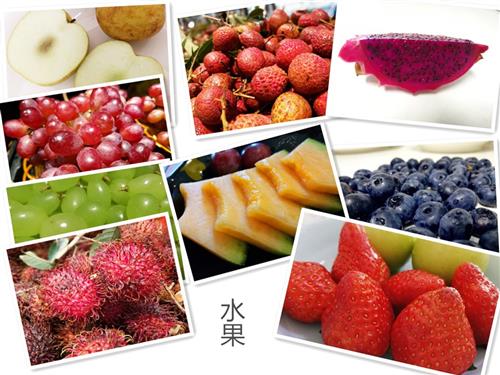Does your home refrigerator have a lot of inventory? Do you think that they can keep nutrition when they put it in the refrigerator? In fact, when the green leafy vegetables in the refrigerator are put together with the apples, the leaves will soon turn yellow and become rotten; the juices will be returned to the refrigerator after being opened and even if the caps are tightened, half of the vitamin C will be lost within one week. The common refrigerating temperature for storing food in the refrigerator is 4° C. to 8° C. In this environment, most of the bacteria grow slowly. However, some bacteria are psychrophilic, such as Yersinia, Listeria, etc. At this temperature, they can rapidly grow and multiply. If foods that are infected with this kind of bacteria are eaten, they will cause intestinal diseases. In the freezer of a refrigerator, the temperature is generally around minus 18 degrees Celsius. At this temperature, bacteria are generally suppressed or killed. Therefore, there is a better preservation effect of foods stored inside. However, freezing does not mean that it can be completely sterilized, and some bacteria with strong antifreeze ability will survive. Therefore, from another perspective, if the refrigerator is not sterilized frequently, it will become a “hotbed†for some bacteria. In addition, the food in the refrigerator should not be stored too much. This will cause the external temperature of the food to be low and the internal temperature to be high to cause deterioration. The specific time limit for storing each kind of food in the refrigerator Foods that are common in our daily lives, look at how long they are stored in the refrigerator. Fish: refrigerated for 1 to 3 days, frozen for 3 months to 6 months Milk and yogurt: refrigerated for 5 days Can: Unopened canned food for 1 year Sausages: chilled 2 to 3 days, frozen for 2 months Peanut butter: refrigerated for 3 months Bread: refrigerated for 3 to 6 days; frozen for 2 to 3 months Chicken: chilled 2 to 3 days; frozen for 1 year Citrus: Refrigerated for 1 week Spinach: refrigerate 3 to 5 days Eggs: fresh eggs are chilled for 1 to 2 months; cooked eggs are refrigerated for 7 days Foods that need to be put in the refrigerator for a day When cabbage, spinach, celery, carrots, peaches, grapes, and apples have just been bought back, it is best not to put them into the refrigerator immediately, because low temperatures will inhibit the enzyme activity of fruits and vegetables, so that the residue can not be broken down. Therefore, it is best to store the above fruits and vegetables in the refrigerator at room temperature for a day. Food that should not be stored in the refrigerator Tomatoes, cucumbers, bell peppers, lychees, etc., are best kept in drawers in refrigerators. Should not be stored outside, otherwise it will appear black, soft, off taste phenomenon. Suitable for food stored at room temperature The suitable storage temperature for bananas, lemons, squash, etc. is 13 degrees to 15 degrees, and it is easy to make it dark and rot at low temperatures. To store food these you must know 1, milk must hide out, the light can not only sterilize, but also "kill" milk nutrients. The study found that milk is acidified and deteriorated when it is directly exposed to sunlight for 4 minutes. The vitamin B2 in milk is very sensitive to light and can be rapidly lost in the light. The light will also oxidize the lipids in the milk and cause other nutrients such as vitamins A, D, B6, B12 to be slowly damaged. Among them, milk in glass jars or plastic jars, in particular, is the most susceptible. 2, green tea should be stored in the refrigerator, green tea has a lot of health benefits, has proved to help prevent heart disease, cancer, Alzheimer's disease, etc., mainly because it contains catechin. However, a study published in the United States "Food Science" magazine pointed out that after sitting at room temperature for 6 months, the content of catechins decreased. Therefore, green tea is best stored in the refrigerator. The black tea can be stored at room temperature. 3, fruit and vegetable with the release of metamorphosis "infection", vegetables and fruits are put together, easy to degenerate and "infection." Remember, not only do people get infectious diseases, but the spoilage between fruits and vegetables can also be "infected." Penn State University research reminded that apples, almonds, red peppers, peaches, cantaloupe, tomatoes, etc., when put together with other fruits and vegetables, will release ethylene gas, so that the latter quickly matured and deteriorated. In addition, the above fruits and vegetables and cruciferous vegetables and green leafy vegetables together, but also the latter's leaves will quickly turn yellow and rotten. 4, "squeezy" green leafy vegetables are best kept in the refrigerator and eat as soon as possible. Radishes, carrots, cabbage, potatoes, onions, apples, pears, etc., all belong to storage-resistant food and are suitable for putting on the balcony. Potatoes and other root vegetables, the smaller the head, the higher the content of vitamin C, can be stored in paper bags, to prevent excessive light and oxygen damage the dimension C. Yang Hongmei nutritionist suggested that the food in the refrigerator should be placed as far as possible, and the meat and vegetables should be separated. The food containers should be separated and used to avoid the smell of food, and at the same time, the growth of bacteria can be effectively suppressed. Should pay attention to regular disinfection of the refrigerator, non-toxic and odorless disinfection reagents can be used to wipe. Shine Skin Pumpkin Seed Kernels Shine Skin Pumpkin Seed Kernels,Pumpkin Kernel,Raw Pumpkin Seeds,Peeled Pumpkin Seed Inner Mongolia Xuanda Food Co., Ltd. , https://www.xuandagroup.com